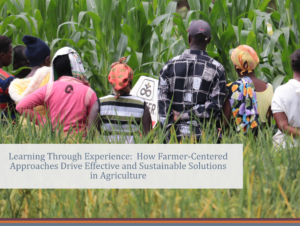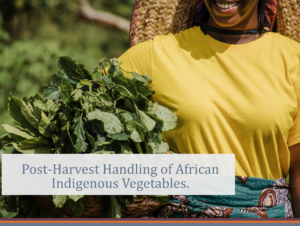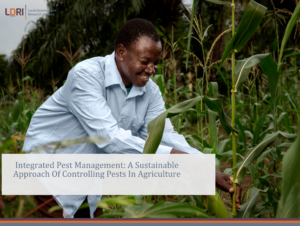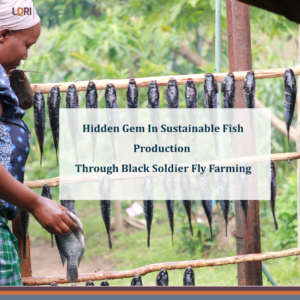![]()
FALL ARMYWARM (FAW) MENACE IN KENYA
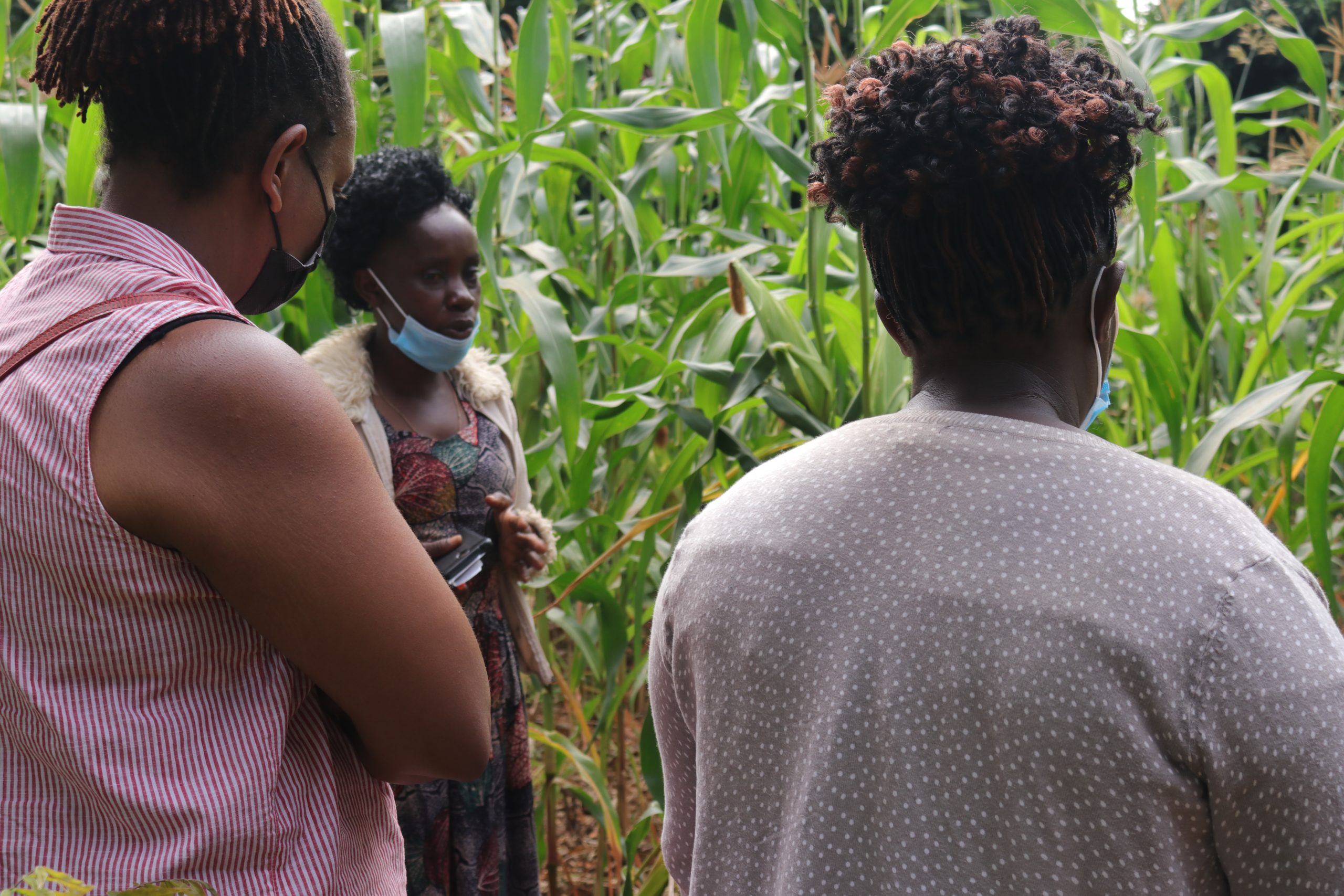
Fall armyworm (FAW) infestation in Kenya presents significant threats to maize production. FAW, scientifically known as Spodoptera frugiperda is an insect pest with moth as the adult stage and larvae (caterpillars) as the destructive stage. In Kenya, the pest was first observed in March 2017 in a maize farm. Maize is the pest’s most preferred host, but it can also attack crop plants such as sorghum, rice and wheat. The FAW is migratory in nature and at the adult stage travels over 100km per night causing expansive damage to crops.
An adult female moth lays tiny eggs in masses of 150-200 on host plant. The eggs hatch into larva. The larva goes through six stages; each varying slightly in physical appearance and pattern. This is the most destructive stage, feeding on soft plant tissues. The young larvae feed on leaves and cause window pane-like damage, initially appearing to only “scratch” the leaf. As they grow, they feed on large amounts of leaf tissue causing large ragged and elongated holes on leaves, leading to a shredded appearance. Larvae produce a lot of grass on the surface of leaves as they feed and grow. The leaf whorl is preferred in young plants. Once the maize plant starts to tassel, the larva moves to the cob where it begins to feed on the developing kernels (seeds). Often only 1 or 2 larvae are found in each whorl, as they become cannibalistic when larger and will eat each other to reduce competition for food. The large larva then moves to the soil where they pupate. Duration and survival of the pupal stage depend on the temperature of the environment. Then after approximately 8-9 days the adult moth emerges to restart the cycle.
To control FAW, maize farmers are advised to ensure that they do timely land preparation. That is, they should prepare their land roughly 1-2 months before onset of rains by deep ploughing their land in order to expose any FAW pupae to the surface of the soil, where they will be killed by the sun or attacked by other organisms such as insects, birds, etc. Also, timely planting is very important and farmers should avoid late and off-season planting since off-season planting and late planted fields are more likely to become infested while Early planting allows maturity of maize before high pest population build-up. Farmers can also use mechanical methods to control FAW which include; handpicking and squashing the egg masses, picking and crashing larvae and application of suffocating materials such as wood ash, soil in plant whorls. And also farmers are advised to use insecticides where necessary. Spraying is determined by scouting observations. Farmers are therefore advised to scout their maize farms often so as to know when to take effective action,just because farmers have FAW in their fields, does not necessarily mean they need to spray. To improve the efficacy of the insecticides used, spraying should be done late in the evening as opposed to during daytime. This is attributed to the fact that FAW are nocturnal. Farmers are advised to spray directly to the plant whorls (funnel) and top leaves and should choose an appropriate insecticide on the basis of experience or recommendation from agricultural extension agents. However, to win the war on FAW, insecticides of different chemical classes need to be alternated because they mutate very fast.
Fall armyworm large larva on the maize plant whorl and frass
Maize cob attacked by fall armyworm
In Kenya, the Fall Armyworm is a major challenge for maize farmers in Kiambu and Embu Counties, where LDRI is implementing the Village Based Advisors (VBA) methodology for agricultural extension concentrating on the maize value chain. LDRI has therefore incorporated a module on FAW control during VBA training, and also engaged several agrochemical companies to assist in training the VBAs who eventually train farmers in their villages. In addition, LDRI has been organizing field days where farmers are trained on GAPs and on how to control Fall Armyworm. In June 2021, LDRI in conjunction with Land O’ Lakes, Venture37 and AGRA comprehensively trained 10 VBAs and 10 Ward Agricultural Officers on how to identify and control Fall Armyworm. They were trained as ToTs and thus required to train other VBAs within their Sub Counties, who will eventually train farmers within their villages as a way to mitigate the damage caused by FAW.
One of our VBAs Damaris Kinyanjui from Ngenda ward, Gatundu South Sub County , shared her experience with us. “During the season of March-May 2021, my production dropped significantly due to fall armyworm attack and erratic rains. From 4bags of 90kg which I sold at ksh 40,000 to less than 1 bag of 90kg which I sold for ksh 10,000. Before the FAW training, we used to mitigate this pest the local way, that is, by spraying anytime of the day, not spraying correctly and we never bothered to wear Personal Protective Equipment the right way. This led to great crop losses and sometimes our health was compromised due to exposure to pesticides. But after the training, I felt like I had woken up from a never-ending nightmare. The knowledge that I gained provided me with the necessary tools to control this pest and train other farmers on the same. I anticipate a better harvest in the coming seasons”.
We believe that through these trainings, farmers will be well equipped with the right knowledge on how to control FAW in order to improve their yields, protect themselves and their families and also care for the environment.

